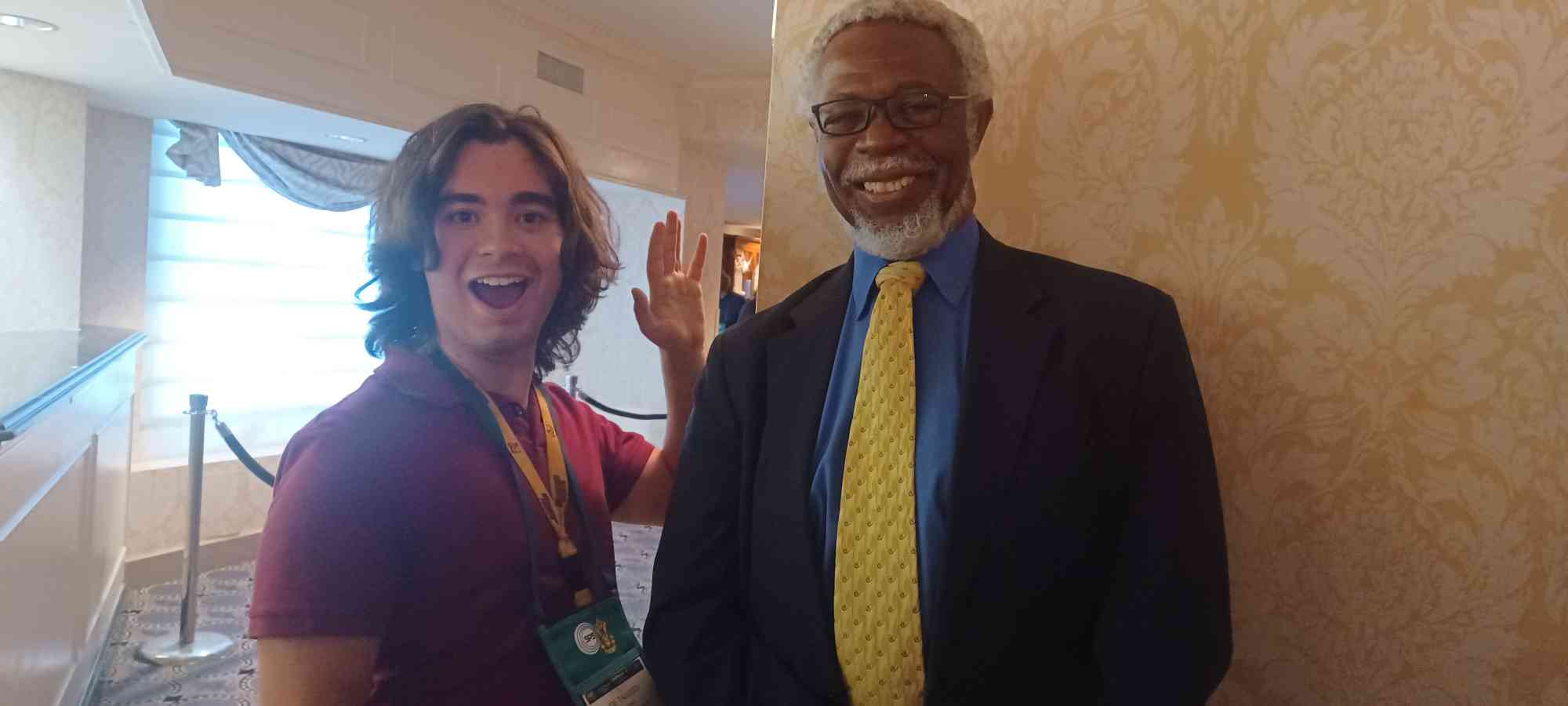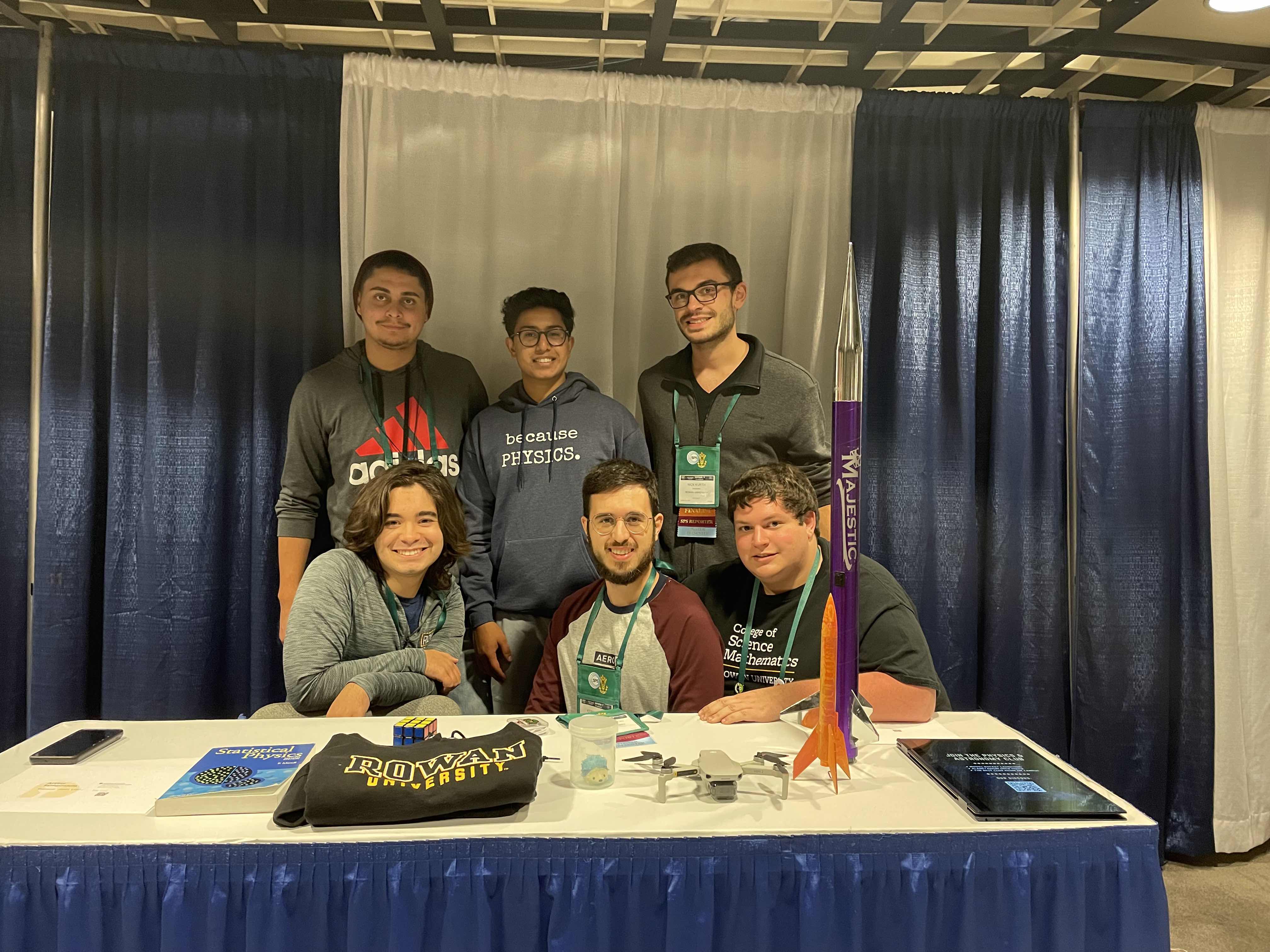Phys Con 2022
Phys Con 2022
Phys Con 2022: Diversity and Us—A Positive Physics Cultural Shift
by Joseph Talucci, Ayaz Mahmood, Leo Han, Nicholas Kurth, Kerem Yildiz, John Torres, Andrew Pinto
At the 2022 SPS Physics Congress, chapter leaders from throughout the country gathered to discuss ways to make Physics a more diverse and inclusive academic environment. There were several workshops held with this goal in mind: One had all attendees gather in one place to directly discuss issues facing physics undergraduates — the most popular problems brought up were academic burnout and a lack of support, especially among minority students. A second, hosted by the AIP TEAM-UP Project, suggested that it’s imperative that minority students are allowed to develop a sense of belonging and personal identity. These workshops all shared a theme: That historically Physics is a white male dominated field, and it will take work to break away from that legacy.
This clearly is something that most students are aware of, because many of them came to Physcon 2022 to present posters on outreach programs they had developed. These outreach programs often targeted a specific demographic of students, such as women or black students, and aimed to provide mentorship for them by somebody of that community. Other posters included studies on specific issues facing minority students. One that caught our attention was a poster by Davidson College student Jaimelee Felipe, who wrote on the phenomenon of imposter syndrome in women in Physics. She wrote that women in Physics are disproportionately affected by stereotyping, infantilization, and have a lower sense of belonging and identity in the field than men.
These feelings were corroborated by women hosting a graduate school QA panel later in the conference. All panelists had, at some point in their academic careers, been belittled or discredited for their gender. When a woman student asked how she can make her artistic skills marketable for graduate school admissions, one panelist told her, from experience, that it might be best to leave that out of her resume, “Because they might see you as a kid.” Later, a student asked if being a woman in a field of mostly men gets easier. A panelist answered, “It makes me feel better to not think of myself as a woman in Physics—just a physicist—to fit in better.” Yet, it is men who have dominated Physics academia who set the standard for who a physicist should be, not women. So, if a woman graduate student has to act more in-line with the standard set by men to fit in — hiding aspects of herself like her creativity which are seen as infantile – we definitely have some work to do as a community. Of course one would suffer from imposter syndrome in that environment.
Physics academia being a place which is sometimes hostile towards women is not something new. Dame Susan Jocelyn Bell Burnell, an Irish astrophysicist famed for her work discovering the pulsar in 1967, was a centennial speaker at the event. Despite her success, even she faced discrimination. At primary school she and other women were placed into cooking classes while the boys were put in business and science classes; something her parents had to step in to correct. When attending school in Glasgow for her undergraduate degree, she was the only woman in her program. She said that whenever she would enter the room, the all-male student body, and sometimes the teachers too, would catcall her and stomp their feet.
Yet, persevering for her love of Physics, she went on to discover the pulsar at University of Cambridge, leading her research advisors to receive the Nobel Prize, not her. While her advisors would be asked important questions about astrophysics by the press, journalists would ask Dr. Burnell questions about her hair or how many boyfriends she’d had. While this became a widespread controversy and her instrumental role in the project was well-known, she would not receive academic recognition for her discovery until 2018 when she received the Special Breakthrough Prize in Fundamental Physics.
One student at the conference asked Dr. Burnell, “What must be done to make Physics a more inclusive environment for women?” Her answer was that Physics education is still lacking in outreach and mentorship programs for young women. Because women are a minority in our academic field, they stand to benefit from direct mentorship and community with other women. Currently some women are put in a position that feels alien to the rest of the Physics community, so it is imperative that those women are allowed to foster a sense of belonging.
Concurring with this was another centennial speaker, theoretical physicist Sylvester James Gates. Dr. Gates, outside of his work in string theory, is an outspoken advocate for affirmative action programs for minority groups in the sciences such as women and people of color. He argues that while it is one thing to simply have a diverse range of people in one’s field, it is entirely another to actually include and incorporate those groups and their cultures into that field. As it stands, Physics culture is overwhelmingly white and male, even if others are entering the field. But, says Dr. Gates, that can change if we mentor those individuals and allow them to excel in their own identity.

Recall the woman graduate student who spoke at the panel who said that she has an easier time fitting in if she stops thinking of herself as a woman in physics, but rather just a physicist. This is tragic because there is not a monolithic ‘Physics student’ identity that exists outside of the framework of gender or race — that identity is the result of years of white male dominance in the field. That woman is just being alienated. In order for us to move forward, women and minorities must be allowed to foster a sense of community and belonging in the field, rather than pushed into a Newton-shaped hole.
We are glad to see that deeper issues of diversity and inclusion were at the forefront of the 2022 SPS Physics Congress. It gives us hope that a hundred years from now we will have made as much social progress as we have in the last: We hope that Physics academia will have become a place where people of all types can share their own, unique ideas within the community at large. This change will take work and significant funding for the programs required, but we are confident now that knowledge of these issues is widespread enough that together we can make the cultural shift possible.
